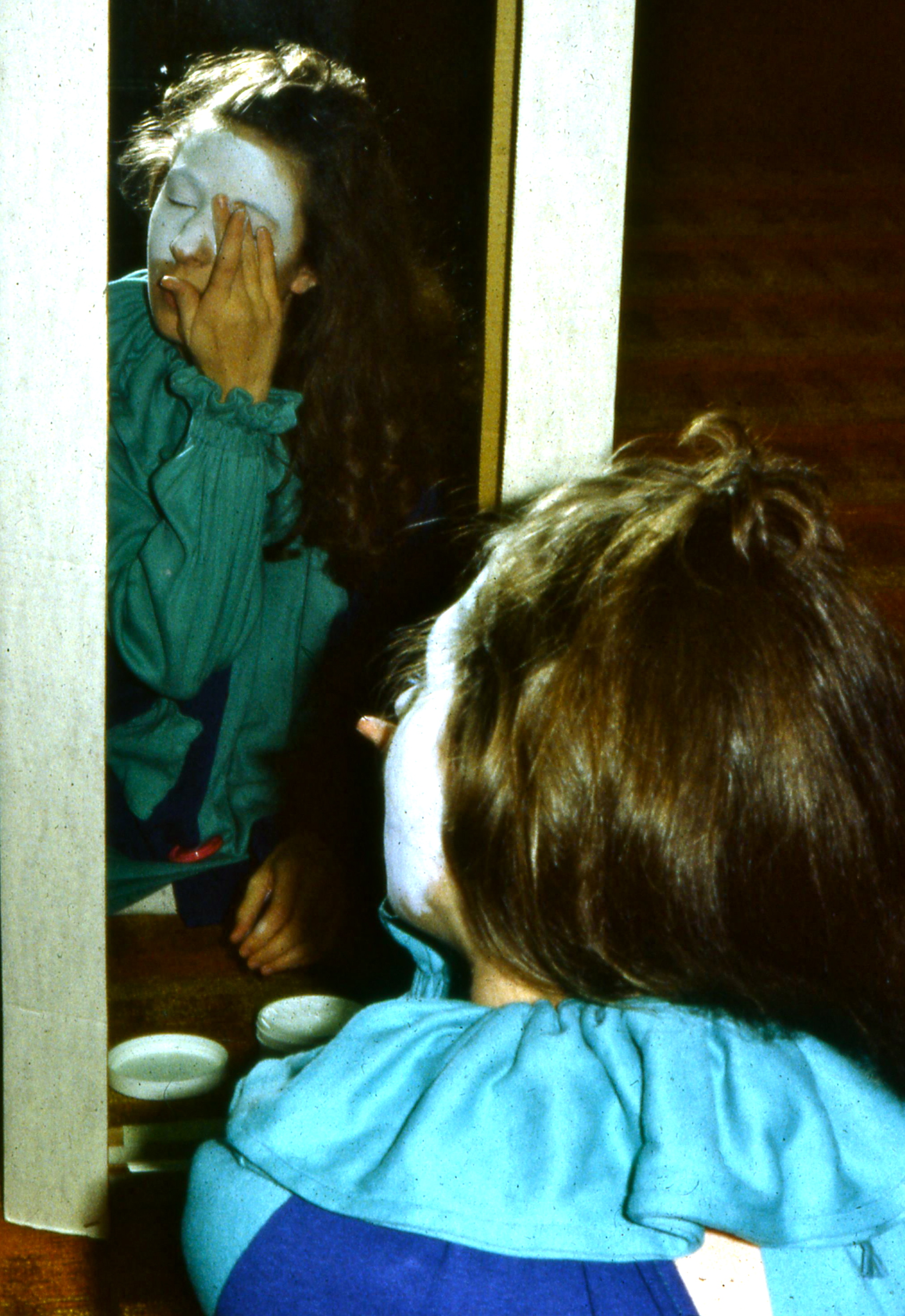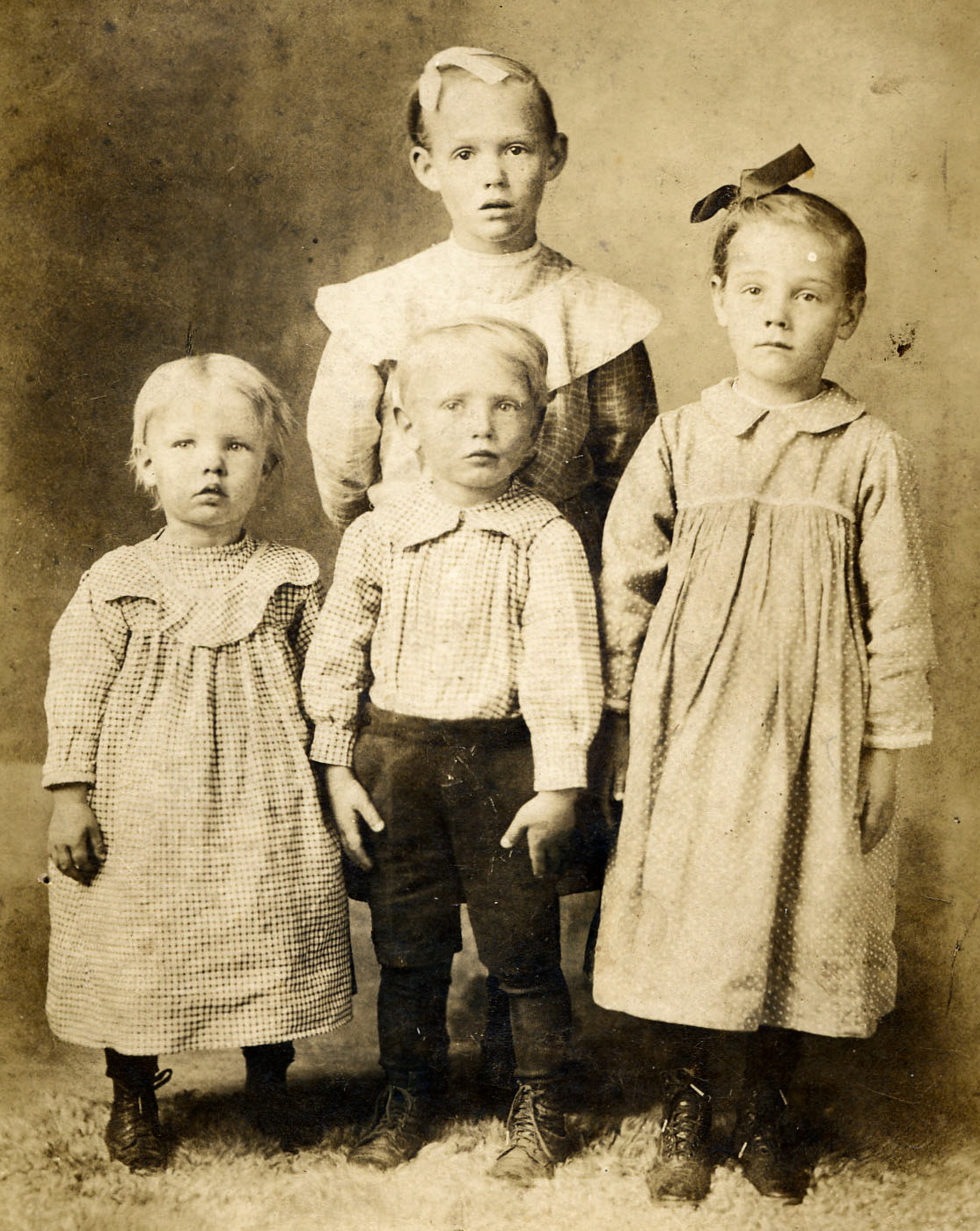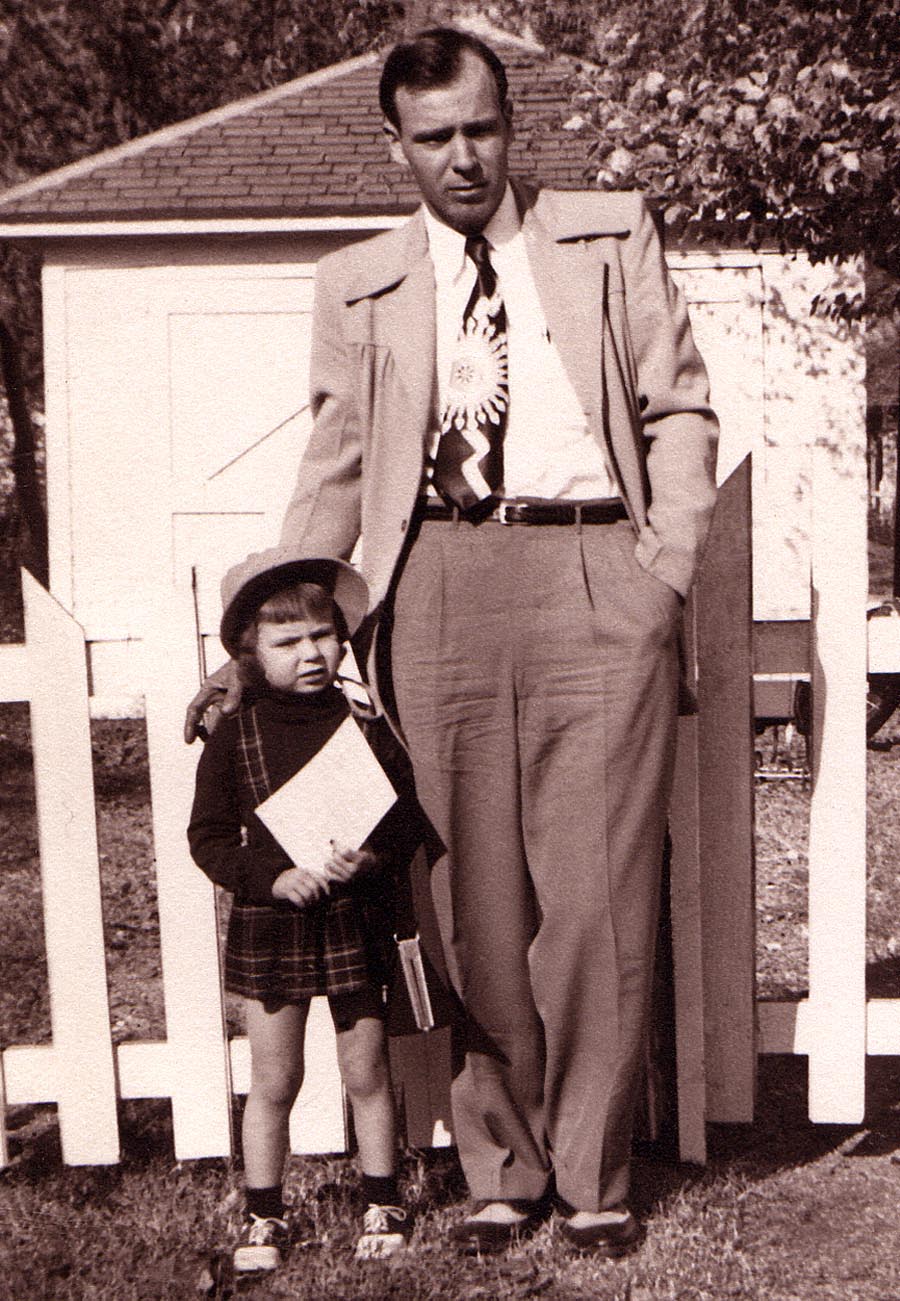“When you’re different, sometimes you don’t see the millions of people who accept you for what you are. All you notice is the person who doesn’t.” ~ Jodi Picoult, Change of Heart
Tag Archives: stories
Leaning in…
I was listening to a Hazelden webinar on adolescent suicide. The presenter talked about the importance of engaging the suicidal teen, encouraging them to talk. She identified the three most important words to say when you’re the one being told, “Sometimes I feel like killing myself.” What were the words she thought had such power to connect? “Tell me more.” Three small words with the potential to change the course of a person’s life.
“Tell me more.” Three words that invite someone to share their pain and confusion. Why are those words so often left unspoken? Perhaps because encouraging someone to hand us their pain may be the right thing to do, but it is rarely the easy thing to do. In fact the willingness to stand and hold another’s pain often leaves us facing our own discomfort.
“Tell me more.” I replayed those three words as I went about my day. I thought about how they fit other situations. How powerful those words could be with those who grieve. How in the midst of grief we long for someone to ask us to tell them more about who and what we have lost. How holding the pain of someone else’s loss feels uncertain and uncomfortable, and so we hold back.
I was still chewing on the benefit and difficulty of “Tell me more”, when my weekly dose of Modern Family came on. It is Phil Dunphy’s favorite day, leap day. He has big plans to do something out of the ordinary to celebrate. But as the day continues, things begin to fall apart. Phil pulls the two boys, Luke and Manny aside in an attempt to salvage their celebration. He leans toward them and says in a low, somber voice, “I have a plan.” The boys just stand there. Phil adds, “It’s kind of traditional to lean in when someone says they have a plan.” Both boys immediately lean into the circle. No hesitation. Focused.
That’s when it came to me. What Phil Dunphy had to say was important. And when someone has something important to say, we need to lean in. To lean in and embrace what is being said, giving the words, the feelings, and the person our presence. Perhaps no territory feels more uncertain and overwhelming than the landscape of grief and loss. When we find ourselves in the presence of wounded travelers and their story, needing to lean in, our first impulse may be to just stand there. Sometimes we even step away.
Forty five years ago, John Drakeford wrote a book titled, The Awesome Power of the Listening Ear. It was a book about the “power of simply listening to others”. I think Drakeford’s intent was to help us push past discomfort to a place of leaning in. A place of inviting others to tell us their stories. What if in the presence of grief and loss, we begin to lean in, and quietly say “Tell me more.”
“Oh, the comfort, the inexpressible comfort of feeling safe with a person, having neither to weigh thoughts nor measure words, but pouring them all out, just as they are, chaff and grain together, certain that a faithful hand will take and sift them, keep what is worth keeping, and with a breath of kindness blow the rest away.” ~ George Eliot
I went to their resting place,…
Carol at Carol Wiebe Wonders Out Loud, asked me not long ago if I ever wrote poetry. I told her I did occasionally. So Carol, here is one from a long time back. I chose to post it now to add to the ongoing conversation about loss and grief. Thanks for asking, Carol. I look forward to seeing where your thoughts on shared mourning “artfully” take you.
Shared Mourning
Not planning to go, but
Drawn there just the same
I went to their
Resting place, and
You stayed by me.
I walked among grey stones
Under grey skies leaving my
Burden in shallow graves of
Sunken footsteps in the
Rain soaked ground, and
You walked with me.
Their stories came not in the
Rushing torrent of new grief but
Slowly, gently, quietly as a
Stream, small but sure, flows
Always toward its rest; I
Spoke with quiet grief, and
You heard me.
Silence settled softly on me,
Around me, with gentle tears
Raining down from grieving sky.
My sorrow cradled in your eyes, I
Remembered those who sleep.
You held my silence.
Shoulders touching, we sat each
Alone, yet bound by strong,
Unspoken words of grief and
Joy for those we love.
Comfort came in our shared mourning.
The times they are a-changin’
Singing my ABCs…
I want to say big thank you to Debbie at Two Minutes of Grace, for sharing the ABC award with me. The time it has taken me to respond is no indication of how much I appreciate being thought of by Debbie.
The ABC instructions are:
Add the logo to your site.
Pass the ABC award on to other bloggers.
Use the alphabet to make a list of words describing you so readers will learn more about you.
I am pleased to pass the ABC award along to these wonderful bloggers:
“No book is really worth reading at the age of ten which is not equally, and often far more, worth reading at the age of fifty and beyond.” ~ C.S. Lewis
Debbie, I borrowed your C.S. Lewis quote to introduce my ABC list, not of words, but of children’s books I love. Some are from my own childhood, some from my daughters, and some I have enjoyed reading to my grandchildren. I have used many of them in my therapy practice with people of all ages.
An Alphabet of Children’s Books
Alexander and the Terrible, Horrible, No Good, Very Bad Day – Judith Viorst
Angelina Ballerina – Katharine Holabird
Are You My Mother? – Phillip D. Eastman
Best Friends for Frances – Russell Hoban
Corduroy – Don Freeman, Calamity – Camilla Ashworth
Dinosaur’s Divorce – Marc Brown
Ella the Elegant Elephant – Carmela & Steven D’Amico
Franklin in the Dark – Paulette Bourgeois
Giving Tree, The – Shel Silverstein
Guess How Much I Love You – Sam McBratney
Horatio’s Bed – Camilla Ashforth
I Promise I’ll Find You – Heather Patricia Ward
I Was So Mad – Mercer Mayer
Just Like You – Jean Fearnley
Just Go to Bed – Mercer Mayer
Kissing Hand, The – Aubrey Penn
Llama, llama, Red Pajama – Anna Dewdney
Miraculous Journey of Edward Tulane – Kate DiCamillo
Midnight Farm, The – Reeve Lindbergh
Not A Box – Laura Vacaro Seeger
Oh The Places You’ll Go – Dr. Seuss
On The Night You Were Born – Nancy Tillan
Polar Express, The – Chris Van Allsburg
Quiet Book, The – Deborah Underwood
Ride a Purple Pelican – Jack Prelutsky
Stellaluna – Janell Cannon
Snowy Day, The – Ezra Jack Keats
Talking Like the Rain – X.J. & Dorothy M. Kennedy
Up and Down – Oliver Jeffers
Velveteen Rabbit, The – Margery Williams
Whale’s Song, The – Dyan Sheldon
Pooh’s Xylophone Book, closest I could come to get an “X”.
You and Me, Little Bear – Martin Waddell
Zoo for Mr. Muster, A – Arnold Lobel
How many of you have found yourselves singing the ABC song in your head, maybe even under your breath, when trying to put something in alphabetical order? Please tell me I’m not the only one.
a motherless child
“Sometimes I feel like a motherless child. Sometimes I feel like a motherless child. Sometimes I feel like a motherless child, a long way from home,”.
Reading this post may be like sifting through a pile of scattered thoughts. A reflection in itself of the fact that losing a parent is an experience that covers the lifespan. My hope is that you will see it as a continuing conversation, not a final answer. And that you may find some encouragement and strength for your journey.
The loss of a parent may be one of the broadest experiences of loss. No stage of life guarantees us that our parent’s death will go unfelt or unmourned. No stage offers us immunity from feeling that loss, or facing the change it brings.
The younger we are the more our loss may encompass grieving the parent we never knew. For a child, the death of their parent can mean living with the nagging feeling of having been left. Not unlike being left on a hiking trail without our guide, before we’re confident of our ability to find our own way. When one parent dies, a child often loses the other parent to their own grief. We may feel isolated as we try to protect the other parent from feeling our shared pain. Sometimes we arrive in adulthood carrying the wounds of childhood losses experienced before we had an older, wiser, more forgiving language. A language to help us both describe and soothe our pain.
The feeling of being left can come at any age. As though the color of abandonment is present for each of us, just in different shades based on the time and circumstances. When my dad’s mother died I recall him saying reflectively, “Now I’m the oldest living member of my family”. There was sadness, resolve, and a touch of uncertainty in his voice. I was surprised. There were ways he had lost her long before that moment, to the dementia that swallowed her up one bite at a time. And even before that when her 13 year son died suddenly from spinal meningitis. She was forever changed, and at age 11 my dad lost his brother and became the oldest son, bearing the weight of hopes and dreams not yet lived. It struck me that all of those losses, sudden and progressive, did not protect him from the finality of that moment. Of knowing that he would never have more of her in this life than had been gathered from his birth up to the time of her death. And that in the starkest of realities, the buck now stopped with him.
Our experience of loss may also be colored by the gap between who we needed our parent to be and who they actually were. We can believe that an abusive parent’s death will bring relief and freedom from our pain, only to discover that in being rid of harm we also lost all possibility that the parent we need would someday appear. Whatever has been left unsaid, the acknowledgement of harm, the “I’m sorry”, the “Please forgive me”, will forever be unspoken, silenced by our parent’s exit. It can be a devastating and confusing loss.
Words said that can’t be taken back. Words never said that we wish could be spoken. Questions never asked. Choices never explained. Stories never told. All these and more are frozen in time for us when a parent dies. Their weight varies depending on where we are in this marathon. From being parented in infancy through the love hate race of adolescence. From the renegotiated relay of adulthood to the discomfort of accepting the baton to run this final leg of the race as our parent’s parent. And if they cross the finish line before us, to know it is ours to grieve the success and failure of their life, ours to allow them to rest in peace in their death. Ours to learn to run our own race untethered by what is now behind us.
“I am amputated, inconsolable. My father has died.
Now I must invent him, perhaps fictionalize, mythologize him.
Most of all, I will have to find a way to mourn him.
E. M. Broner, Mornings and Mourning: A Kaddish Journal
Back story…
Candle Lighter Award
The GrowthLines blog has been nominated for The Candle Lighter, a WordPress award. I would like to say “Thank you” to Jen at Step on a Crack, for her gesture of encouragement and recognition in gifting me with this award. Jen’s writing has a level of beauty that helps us look at the harsh realities of truth, and find the path to a life lived with strength and authenticity. I count it my extreme good fortune to have become her friend across miles, through pictures painted with words. Thanks, Jen.
This award belongs to those who believe,
who always survive the day,
and those who never stop dreaming.
For those who cannot quit,
for those keep trying,
and if you’re in this category,
you are entitled to this Award.
I would like to nominate the following blogs for bringing the light of kindness, creativity, and hope to those looking for a good word, a reason to smile, and a welcoming place:
The idea of spreading light seems particularly fitting as we commemorate the life and light of Dr. Martin Luther King, Jr.
Dark Into Light
There was dark
in this world
day and night.
And then
a single candle lit
flickering,
to full flame.
Now
we know
the power of
a single flame
to light the world.
© Paulann C. Canty, 1.16.2012
The Little Rock Nine, Central High School, Little Rock, Arkansas
Show and Tell
 Adults tell children. Makes sense, doesn’t it? It’s our job as parents, teachers, grownups in a community. We’re supposed to teach them right from wrong, how to be responsible, how to make good decisions, how to succeed as they make their way in the world. We know it is our job to tell them how to do what they’re supposed to do.
Adults tell children. Makes sense, doesn’t it? It’s our job as parents, teachers, grownups in a community. We’re supposed to teach them right from wrong, how to be responsible, how to make good decisions, how to succeed as they make their way in the world. We know it is our job to tell them how to do what they’re supposed to do.
Adults show children. That’s more complicated. Most of us have had the chance to learn how much easier it can be to “say” what to do, than it is to “show” what to do. If we are going to show what our children need to see, we must become good observers of our own behavior. The less we know ourselves, the greater the risk that the subtle, and not so subtle messages in our actions may speak louder than what we’re telling a child is of value. The task of telling and showing children how to be sometimes meshes well, and sometimes leaves us in a “do as I say, not as I do” moment. Even in a moment of contradiction we have the opportunity to tell and show our children how to go back and make it right. How to face ourselves and adjust our behavior. How to grow toward congruence.
We tell and we show. We’re the grownups. They’re children. They listen. They watch. They follow. All true. But what if there is more to the story? What if our teaching relationship with children is part of a multi-lane highway system instead of a single lane, one way street?
 It was cold and drizzling rain this morning as I began my day. A day of being in and out of the wet, cold weather. Alone in the car I began to grumble about the unpleasant weather, planning ahead for how cold and miserable I would be as the day wore on. And suddenly she was there in my head. A little girl, holding an umbrella, running in the rain…, laughing. You may remember her from And we begin…, running, laughing, umbrella in hand. She was there in my head, reminding me how to celebrate a rainy day.
It was cold and drizzling rain this morning as I began my day. A day of being in and out of the wet, cold weather. Alone in the car I began to grumble about the unpleasant weather, planning ahead for how cold and miserable I would be as the day wore on. And suddenly she was there in my head. A little girl, holding an umbrella, running in the rain…, laughing. You may remember her from And we begin…, running, laughing, umbrella in hand. She was there in my head, reminding me how to celebrate a rainy day.
Then I began to think of all the children, my own two and beyond, who have been my teachers. Children who showed me how to call it what it is, including the elephants in the living room. Kids who showed me how to be honest when I’m afraid, to try something new when I’m uncertain, to laugh at myself, to push through a hard task. Kids of all ages who have shown me what generosity, tolerance, and empathy look like. I spent a cold, wet, dreary day smiling with gratitude each time I thought of the kids who have taught me. Glad that teaching and learning live on a two way street. Determined to be an authentic teacher and a good student.
“Kids: they dance before they learn there is anything that isn’t music.”
~ William Stafford














